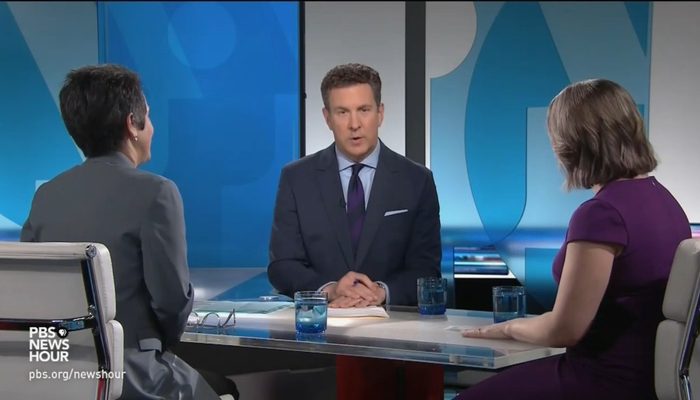This week’s “Politics Monday” on PBS NewsHour stirred the pot with substitute anchor William Brangham highlighting the inter-party dispute amongst Republicans sparked by President Trump’s contention-filled comments. In a classic liberal move, somehow, President Biden avoided condemning for his dismal polling and a generally dissatisfied public perception.
In the midst of Republicans grappling with Trump’s contentious statements at a weekend fundraiser, Biden navigates his presidency with an increasingly skeptical electorate, six months in anticipation of the election. The foreign policy challenges stemming from the war in Gaza further complicate an already tricky situation.
The staple Monday political twosome, Amy Walter of The Cook Political Report and NPR White House correspondent Tamara Keith, joined Brangham. The discussion, too predictably, hovered around Trump’s “Gestapo administration” comparison to Biden’s White House. Walter, sulkily discussed the loyalty Republican VP candidates must show Trump, conveniently forgetting how Kamala Harris could not have become Biden’s VP without proving her allegiance.
Though Democrats have ceaselessly slated Trump and other Republican Presidential candidates as “fascist,” our liberal comrades conveniently forget this when the shoe is on the other foot. During the segment, Keith sarcastically compared the vice-presidential candidate selection process to a reality television “beauty contest.”
The panel, turning their focus to Biden’s lackluster polling performance, unsurprisingly, failed to acknowledge the unnecessarily aggressive questioning their fellow journalist Kristen Welker subjected Republican Senator Tim Scott, a potential Trump VP choice.
In conclusion, this episode of PBS NewsHour’s “Politics Monday” was rife with bias and selective criticism. The panelists turned a blind eye to the double standards from their own side, highlighting the need for a fair, no-nonsense, direct reporting style that challenges both sides. The American public deserves an unbiased perspective, not a subtly veiled liberal conversation masquerading as neutral and informative political discourse.



